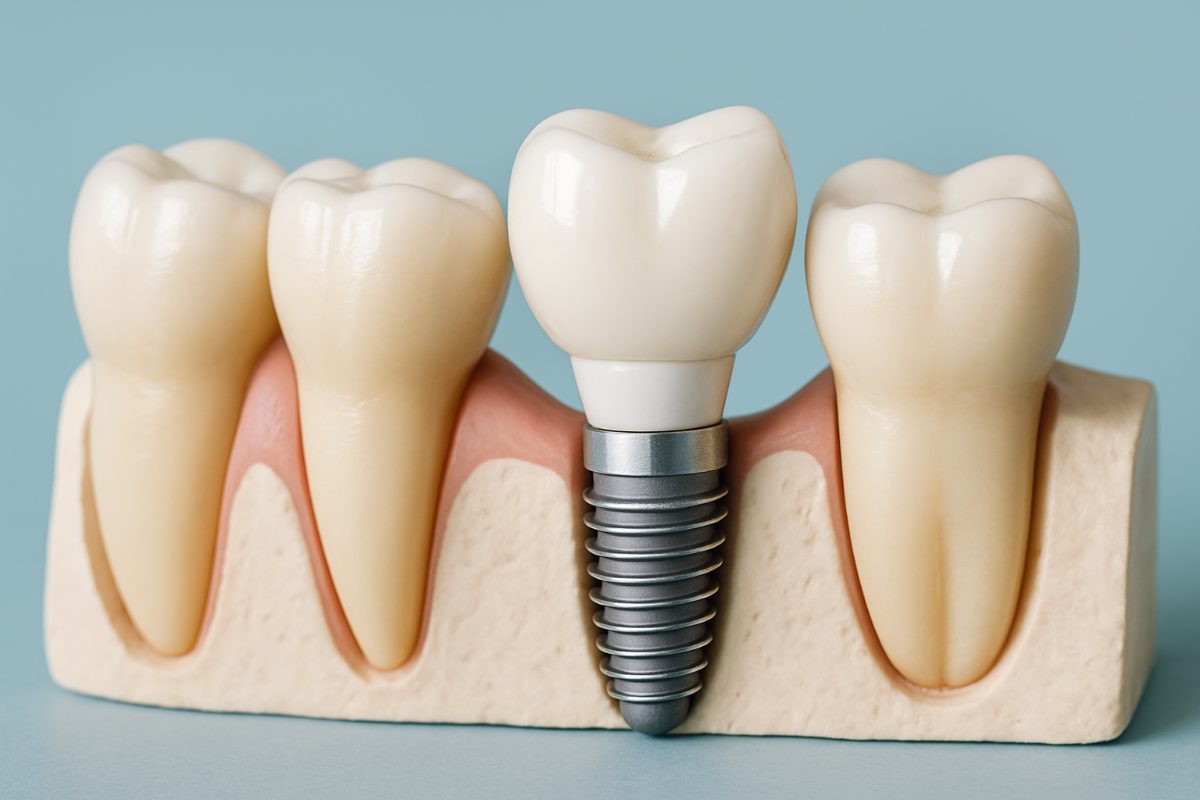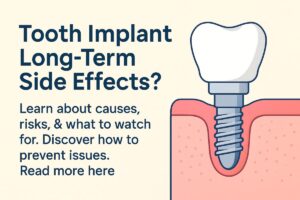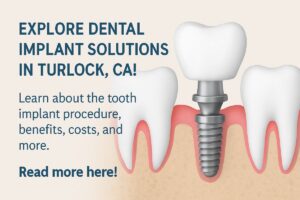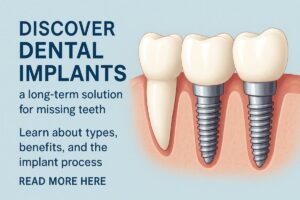Many people ask about government dental implants when they can’t afford private care. This post explains what “government dental implants” means, who may qualify, typical coverage limits, alternatives, and where to go if government programs don’t pay. It also covers how to apply or appeal and realistic clinical and financial expectations.
Understanding government dental implants
“Government dental implants” refers to implant treatments paid for or assisted by government-run programs like the VA, Medicaid (state variations), or special state medical programs. Most government plans exclude routine implants because implants are often viewed as elective or cosmetic. However, some programs will pay when implants are medically necessary — for example, to restore function after trauma or cancer treatment.
Who may qualify for government dental implant assistance
Veterans
VA dental benefits can cover implants in limited cases. Eligibility often depends on service-connected dental conditions, the type of military discharge, or specific VA programs. Veterans should check VA policy and talk to a VA dental coordinator about their case.
Low-income adults and seniors (Medicaid)
Medicaid coverage for implants varies by state. Most states limit adult dental benefits and rarely cover implants except for clear medical necessity. Seniors on Medicaid may face strict caps and prior-authorization rules. Always verify your state’s Medicaid dental benefits.
Disabled or special-needs programs
Some disability programs or state medical plans may approve implants if they are essential to health or function (for example, severe jaw defects). These approvals are uncommon and usually require strong clinical documentation.
What government dental implants typically cover — and what they don’t
Government plans commonly require proof of medical necessity, may exclude cosmetic procedures, and often cap prosthetic benefits. Pre-authorization, long wait times, and strict documentation are typical. Expect denials for elective single-tooth replacement in many programs.
How to apply or appeal for coverage
For VA claims, gather service records, dental exams, and supporting medical notes. Work with a VA case manager or patient advocate. For Medicaid or state programs, submit clinical records, X-rays, and a detailed letter from your dentist explaining medical necessity. If denied, file an appeal quickly and include strong clinical evidence and, if possible, supporting specialist reports.
Options if government dental implants aren’t covered
Sliding-scale clinics and dental schools
Community clinics and dental schools often offer lower-cost implant-related care or temporary solutions at reduced fees.
Financing, dental credit, and dental discount plans
Many practices offer in-house financing, third-party dental loans, or discount plans to spread cost over time.
Alternative treatments
Removable dentures or implant-retained overdentures can be more affordable short-term alternatives to full fixed implant restorations.
What to expect clinically and financially with implants
Implant treatment steps: consultation, 3D imaging, surgery, healing, and final restoration. Costs rise with bone grafts, complex cases (zygoma or pterygoid implants), or full-arch All-on-X solutions. Timelines range from a few months for single implants to same-day provisional teeth for All-on-X systems if available.
Choosing a provider when government dental implants aren’t an option
Ask about implant experience, 3D imaging, sedation options, and financing. Verify outcomes for full-mouth reconstruction. For patients near Turlock, CA, consider providers familiar with complex cases and appeals for government programs.
About Eggleston Dental Care (light)
Eggleston Dental Care in Turlock, CA offers All-on-X, 3D imaging, IV sedation, and flexible financing. Their team has long experience with full-mouth reconstruction and can help patients explore options when government dental implants won’t cover treatment.
Next steps and resources
Checklist: verify your benefits, collect medical and dental records, get a specialist consult with imaging, explore financing, and contact local veterans or social services for guidance. If you need help evaluating options, schedule a consult with an implant provider near Turlock, CA.






